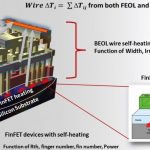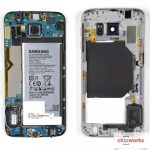In 2001, flipchip with solder bump was already a dominant technology and it was replacing wire bonding as the main interconnection choice for a growing number of devices. It was offering fine pitch interconnections for increased I/O counts. In the solder bump process, a bump is formed on the chip and on the package substrate and … Read More
Electronic Design Automation
ANSYS Enters the League of 10nm Designs with TSMC
The way we are seeing technology progression these days is unprecedented. It’s just about six months ago, I had written about the intense collaboration between ANSYSand TSMCon the 16nm FinFET based design flow and TSMC certifying ANSYS tools for TSMC 16nm FF+ technology and also conferring ANSYS with “Partner of the Year” award.… Read More
Starvision Pro: Lattice Semiconductor’s Experience
During SNUG I took the opportunity to chat to Choon-Hoe Yeoh of Lattice Semiconductor about how they use Concept Engineering’s Starvision Pro product. He is the senior director of EDA tools and methodologies there.
Lattice Semiconductor is a manufacturer of low-power, small-footprint, low-cost programmable logic devices.… Read More
Archives from TI’s Baseband Glory – Part 1
In 1992, nearly two years after Britain’s Acorn Computers joined hands with Apple and VLSI to create Advanced RISC Machines or ARM, the semiconductor upstart landed its first major licensing breakthrough. In retrospect, while Apple’s Newton handheld computer had played a key role in creating the ARM venture, Texas… Read More
FinFET vs FDSOI – Which is the Right One for Your Design?
As a professional conference goer I can see definite trends when it comes to topics and attendance. Thus far this year I have seen a double digit increase in attendance, which is great. The question is why? Why is the fabless semiconductor ecosystem leaving the safety of their cubicles and computer screens in droves to mingle amongst… Read More
US is the Ultimate Leader in Semiconductor Business
Last year in November when I looked at the world’s top20 semiconductor companies with Samsungand TSMCbeing at the second and third rank respectively, first being Intel, I computed the sales numbers of the companies based on their countries and found that Taiwan and South Korea accounted for 34.5% of the total sales of the top20 … Read More
What is Inside of the Samsung Galaxy S6?
I’ve always been curious about what is inside an electronic device, and it was seeing the very first TI handheld calculator that got me started into a career as an Electrical Engineer. Next to Apple, the most popular brand in smart phone devices these days has got to be Samsung and they have just launched the Galaxy S6 device.… Read More
Security All Around in SoCs at DAC
Last month I was on my way to write a detailed article on important aspects to look at while designing an SoC. This was important in the new context of modern SoCs that go much beyond the traditional power, performance and area (PPA) requirements. I had about 12-13 parameters in my list that I couldn’t cover in one go, so I put the write-up… Read More
The Changing Foundry Landscape: Trends and Challenges!
This will be a year of change for the fabless semiconductor ecosystem, absolutely. Last year we were wondering how Samsung Mobile was going to compete with the China clones and other low end smart phones. We now know the answer to that question thanks to the Chipworks tear down of the Galaxy S6. SemiWiki IP expert Dr. Eric Esteve blogged… Read More
Variation Alphabet Soup
On-chip variation (OCV) is a major issue in timing signoff, especially at low voltages or in 20/16/14nm processes. For example, the graph below shows a 20nm inverter. At 0.6V the inverter has a delay of 2 (nominalized) units. But due to on-chip variation this might be as low as 1.5 units or as high as 3 units, which is a difference from… Read More






Moving Beyond RTL at #62DAC